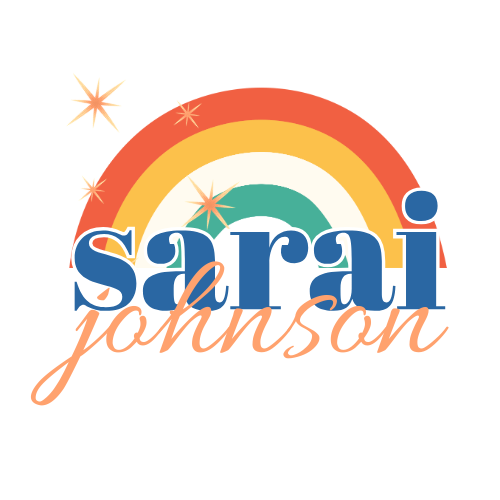getting comfortable with discomfort: building cultures of belonging
We live in a world that is multifaceted and complex. The people we work with in our organizations expect more meaning and fulfillment out of their work.
The diversity of our teams is (read: SHOULD BE) expanding to better reflect the makeup of our communities.
And yet, we still fall short with our Diversity, Equity, and Inclusion (DEI) efforts. Diversity, Equity, and Inclusion are still neoliberal values.
Diversity, Equity, and Inclusion are still centered on old systems and structures of power - patriarchy and white supremacy.
If you fainted from my use of those hard-hitting words, when you come to, I’ll explain.
Too often, our attempts at integrating equity, celebrating diversity, and including people of many perspectives, origins, and voices in our work is stymied by the inability of people in power to assimilate to challenges to their traditional power dynamics. These efforts are stunted because whiteness and hierarchical structures are still centered in the conversations.
People of color, minority gendered people, LGBTQ+ people, and others who see through the ruse that is very often DEI are jaded and frustrated by it - leading some leaders to see them as noncompliant or otherwise troublesome, leading to the self-defeating cycle of singling out and punishing people who don’t comply with the people in power. (please note: this is not a blanket statement about ALL DEI practitioners or processes - though, I do believe if there is not room to do the messy and challenging work of digging into one’s own internalized biases to work through them and replace them, it is not enough).
“People in power” includes literally all white people to differing degrees.
I help organizations build a Culture of Belonging.
I help individuals do the very first step of dismantling white supremacy (it’s a real thing - in case you’re on the fence, and all of us white people need to be working consciously and constantly on this).
The first step? Getting comfortable with discomfort so you can do the tough, inner work of your own emotional labor before you out out into the world asking oppressed people to do it for you.
how to know this is for you:
Do you bristle at the idea of white privilege, or think it doesn’t exist?
Are you confused, irritated, or otherwise agitated when people discuss cultural appropriation - especially when it challenges your use of fashion, spiritual practices (yep, even yoga), or other things you personally want for yourself?
Do you think you’re “colorblind?”
Has someone ever told you something you’ve said or done is racist?
Does your workplace pay equitably for like work and qualifications across race and gender lines?
Do you resist the concept of white fragility?
Do you have a strong emotional reaction when discussing race, gender equity and diversity, or other cultural matters?
Do you feel offended when people of color (especially women of color) express frustration or anger toward you for your comments or behavior?
You find yourself saying things like, “Can’t we all just come together and get along?”
Have you ever touched a black woman’s hair without her permission (a microaggression)? Or even marveled aloud at how cool it looks because it is “exotic” (a “microaffection”)?
Do you work at or lead an organization that doesn’t match the constituency you serve, or the community you serve? e.g. you’re mostly white people, but you live in a place that isn’t mostly white. Or you have mostly men in leadership, but women do most of the direct-service work? Or you have what seems to be a diverse workforce, but mostly white people remain in leadership positions?
i can help.
My work on Diversity, Equity, and Inclusion focuses on creating cultures of belonging, dismantling and rebuilding organizational (and societal, incidentally) power structures to create systems that work for everybody who is part of the organization.
My work starts with helping people - white people, mainly, but also anybody who struggles with dealing with internalized biases they don’t want to face, or can’t seem to face on their own - face their hidden, internalized racism, misogyny, homophobia, transphobia, fatphobia, and ableism they didn’t even know what lurking so they can transform their relationships, their viewpoint, and their ability to see others as worthy of belonging.
My approach is compassionate, loving, gentle, and empowering.
Look. Here’s the deal. We all live in a culture that is, on the whole, racist, misogynistic, homophobic, fatphobic, and ableist. It just is. It is no wonder that we all internalize varying degrees of these phobias and biases - even if we, ourselves, are members of one or more of these groups. This is how humans work. We see what is considered “normal” by society and we assimilate our thinking and judgements accordingly. There is a lot of room for compassion in that. Compassion, frankly, that must come from yourself - not from someone who is clearly oppressed and suffering from our biases. I’ll say it louder for the people in the back: OPPRESSED PEOPLE DO NOT OWE YOU THIER NICENESS, THEIR LISTENING EAR, OR THEIR ACKNOWLEDGEMENT THAT YOU ARE ONE OF THE “GOOD” ONES. Cool?
Good.
The truth is, we hide these ugly, internalized biases from ourselves, because they don’t match with our self-concept. We see ourselves as good people, for the most part. This creates an internal discomfort psychologists call “Cognitive Dissonance.” When someone tells you that you’re racist, for example, you will most likely react strongly to that accusation. You will think of all the examples of how you’re nice to people of color, or identify your “black friend” (classic trope, right?), or otherwise find lots of reasons to support your self-concept of being “good.” That makes it very hard to listen when someone calls us out or calls us in about our racist, sexist, homophobic, transphobic, fatphobic, and ableist words or actions. We literally have to experience pain and disruption to even begin to consider what they’re saying to us. Nobody likes pain.
That’s why I’m here to help you learn how to move through this discomfort so you can do the extremely urgent, important, necessary, vital, essential, DO THIS NOW BECAUSE PEOPLE ARE LITERALLY DYING work of dismantling white supremacy and oppressive systems of all kinds.
It starts with you and your ability to deal with your emotions and reactions in a way that allows for transformation, openness, and moving forward in love for yourself and others instead of fear. Fear of losing your power. Fear of being wrong. Fear of being replaced. Fear of losing anything. You can learn to move through this challenging work with grace and love.
Photo Description: A white dude with a mustache prepares himself to learn how to get comfortable with discomfort.
Training
I will train your team on the process of doing the challenging work of introspection, identification of internalized biases, and the systematic rooting out of those biases to make room for more inclusive, humane ways of thinking about and interacting with other humans with traits they don’t share. Teams will walk away with a greater understanding of their own experiences of privilege and oppression, and how to navigate challenging conversations and inner work.
Photo Description: Two women wearing flannel have a discussion in a well-lit room.
Coaching
Work with me one-on-one or in a group over 6 months to implement the practices you pick up in training (or learn them with me as we go). This includes intensive interpersonal work, where I hold space for you to move through your experience without judgment and in a safe space so you don’t rely on oppressed people to do your emotional labor. I’m like your emotional labor forewoman, as I help you work through challenging biases and new ways of being.
Photo Description: Several people are having a business meeting while sitting around a table.
Consulting
If you want to create a culture of belonging for your organization, it takes commitment, time, focus, and every single person in your organization to get on board and work toward that dream. I can help you steer the ship in the right direction, facilitate the dismantling and rebuilding of your power systems that serve to oppress rather than empower. We’ll revamp your Policies and Processes so your People will thrive and have a sense of belonging and commitment.
recommended reading
As a white, cisgendered, queer (but straight-appearing - in a monogamous relationship with a straight, white, cisgendered man) woman, I understand my positions of relative power and oppression. This helps me understand how to relate to the world, when to speak, when to fight, when to listen, when to shut up, and when to act. I also constantly find myself challenged, called to do better, and curious to learn more so I can do the work of dismantling white supremacy.
To that end, I have learned an incredible amount from generous writers whose work I’d like to promote and share with you here. Pick these books up for yourself at the links I provide here, or get them at the library. I highly recommend paying for them, though, because your payment supports the work of BIPOC/WOC (Black Indigenous People of Color/Women of Color), women and LGBTQ+, and fat authors. Full disclosure, I’ll also get a little spare change if you use the links below.
Supporting the work of BIPOC/WOC is an act of social and economic justice. Do it often - anytime you think of it (and challenge yourself to think of it more often). Many activists have Vennmo, PayPal, Patreon, and other cash/payment accounts available on their websites, where they accept contributions for their work. Pay for the work they do, and send them a little extra when you can afford to do so. It matters.
Some of these titles may be challenging if you’re just beginning the work of dismantling your biases, or realizing how you personally benefit from white supremacy, so please be aware that as you read, it is best to sit quietly and inquisitively with any discomfort you experience - and not to react by shutting down, acting out, or setting up fake social media accounts so you can troll people (seriously, it’s a thing). Below the book listings, I share some guidance about where to start, what kind of content is in these books, and which books are more challenging so you can ease into them.
Be aware: the ability to ease into this conversation and this work is itself white privilege. The awareness is important to recognize. People of color and other oppressed people do not have the privilege to go at their own pace through this work - their lives depend on it every day. So, work into it, but don’t stop when you get uncomfortable. Be with it. Make friends with it. It will help you learn to be more open and listen more clearly.
Some of these books are lighter reads - some are mostly funny, but also with substance: The Last Black Unicorn by Tiffany Haddish; Well, That Escalated Quickly by Franchesca Ramsey; and I’m Judging You by Luvvie Ajayi all fit into this category.
A gentle introduction to talking about race is So You Want to Talk About Race by Ijeoma Oluo. This book blew me away with its generosity and warmth, and I highly recommend it as a good place to start if you are feeling a little nervous about dipping your toe in these waters.
Shrill by Lindy West (funny), The Body is Not an Apology by Sonya Renee Taylor (inspiring), and Hunger by Roxanne Gay (crushing and soul-opening), are some of my favorite books about body positivity and fat positivity, along with dealing with rape culture, race, and other issues.
Classic, leading Black feminists Audre Lorde (Sister Outsider) and Angela Y. Davis (Freedom is a Constant Struggle) can be found in this grouping as well.
White Fragility by Robin Diangelo is written by a white woman to and about white people to discuss the emotional challenges white people experience when they deal with race issues, and how this fragility is damaging, harmful, and downright oppressive to people of color.
Unapologetic by Charlene A. Carruthers is an epic book about how to build a radical movement from a black, queer, feminist perspective.
Two of the books I love the most are not directed toward white people at all - they are beautiful memoirs that allow a glimpse into what young, black women experience growing up in the United States. They are both piercingly honest, raw, and incredibly important. Keep in mind as you read them (and you should read them, when you’re ready), that these books are not for you. You can read them and learn so much from them, but in their entirety, they are written by black women for black women and the black community, and they make no attempt to make their work accessible to white people. Why should they? I’m telling you this because these books are more likely to challenge you, or maybe even bring up feelings of defensiveness. This is all OK. This Will Be My Undoing by Morgan Jerkins and Eloquent Rage by Brittney Cooper are books along these lines. They will open you up, spill you out, and challenge you to sit with and allow space for the deeply reasonable, righteous fury women of color live with every day as a result of their constant oppression.
A note on why I do this work. In May 2018, I was asked to present two breakout sessions at a conference focused on Diversity, Equity, and Inclusion. This was a challenging ask for me, because I do personally know people of color (not locally, unfortunately) who do DEI work. I do not want to ever, ever take work or exposure away from people of color, and this idea made me uncomfortable. However, I saw that several people of color were headlining or otherwise leading at the conference, and I also know it is part of my work to dismantle white supremacy, so I agreed to do it.
I live in an area that is extremely white, and has a long history of white supremacy, and the systematic erasure of indigenous people and systemic exclusion of people of color through early laws and founding intentions of my home state, Oregon. This legacy is something that is important for me to work through.
It is also true that many people of color have expressed weariness and frustration with having to do DEI work all the time. They do it because their lives depend on it. They do it even though they are currently, constantly under the oppression of a racist system. This is akin to asking someone who is sexually assaulted every day to teach people how to not rape people. This is trauma.
So, I humbly do this work because I can help with the tilling of the soil and planting some early seeds. I can help people become more aware of their biases and learn the cognitive/emotional skills they need to do the challenging work of dismantling white supremacy - first, internally, and then, systemically. I do this work within myself and in my world every day too. I am always learning. I will make mistakes. I will be inadequate sometimes. I will step in piles. I will make a lot of people mad on every side. But I need to do this work because I truly believe it is the call of our generation to make strides to change the reality that takes the lives of people of color - especially black and indigenous people - in this country and other colonized nations with legacies of genocide and slavery such as ours.
My hope is to help you learn to be comfortable with discomfort, build cultures of belonging, and continue your quest to learn and grow with the help of teachers, leaders, and authors of color and other oppressed identities.



